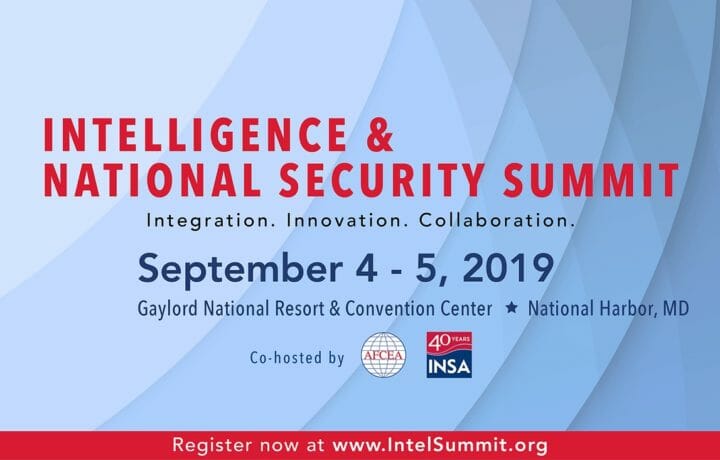Continuous evaluation has been rolled out to more than 1.3 million security clearance holders – but as many questions as answers remain about how the program is working, who it affects, and what it holds for the future of security clearance background investigations and periodic reinvestigations.
Continuous evaluation is one of many national security topics on the docket for the upcoming Intelligence and National Security Summit, hosted by AFCEA and the Intelligence and National Security Alliance (INSA). A panel session, ‘Continuous Evaluation: Balancing Security & Privacy’ brings together professionals from the private sector, Office of Director of National Intelligence (ODNI), and Defense Counterintelligence and Security Agency (DCSA) to discuss the status of continuous evaluation and the impact it will have on the intelligence workforce. ClearanceJobs recently discussed what attendees can expect from the panel in an exclusive interview with moderator David Buckley, managing director at KPMG.
When it comes to the need to balance privacy and security, Buckley emphasized government will always err on the side of security.
“Security is paramount,” said Buckley. “The whole process of granting a security clearance is based on the need to keep things secret or secure, whether it’s the workforce, or classified information, or systems….you’re basically applying and signing all sorts of consent forms consenting for the government to obtain the information…in an investigation process.”
Those consent forms now include agreements for continuous evaluation – so the kind of monitoring currently being conducted should be no surprise to security clearance applicants.
While the balance between privacy and security will always need to be heavy on protecting the government’s crown jewels, that doesn’t mean the government doesn’t need to be concerned about how applicants feel about the amount of information they’re providing, and what their government is doing with it.
“We really need to pay attention to – particularly in government – the employee satisfaction surveys,” said Buckley. “How much do employees actually trust their employer, how much do they enjoy working for that employer, whether it’s a private sector or the government….[to] what degree do you trust your employer?”
Buckley pointed out that previous data breaches demonstrate how trust can be eroded. When people don’t have a good feeling about where the government’s going, that will carry on toward a variety of aspects of their employment – including their attitude toward continuous evaluation. It will be important that government doesn’t create more risk factors for insider threats, as it seems to implement new initiatives to defeat them.
Trusted Workers and Continuous Evaluation
The implementation of continuous evaluation is just one effort the government is making toward reframing who is a trusted worker – dubbed the Trusted Workforce 2.0 initiative by ODNI. It’s another topic the panel will be addressing at the Intel Summit. And whether it’s Trusted Workforce or continuous evaluation, a key aspect of each program is the need to continue educating the security workforce.
“It’s really getting down to the employer and employee and making sure that we bolster the whole security paradigm, whether it’s inside a company or inside a federal agency – or increasingly state and local agencies,” noted Buckley. As the government reevaluates its suitability criteria for security clearance determinations, it’s also reevaluating how companies classify their sensitive information It’s not just about classified information – today the personnel security program is at a point of fundamental change.
“I think we’re destined – if we can stay on track – for a much more competent system than we’ve had for the past 60 years,” said Buckley.
Register for the upcoming Intelligence & National Security Summit to hear about continuous evaluation, artificial intelligence, military intelligence priorities, workforce issues, and more.




